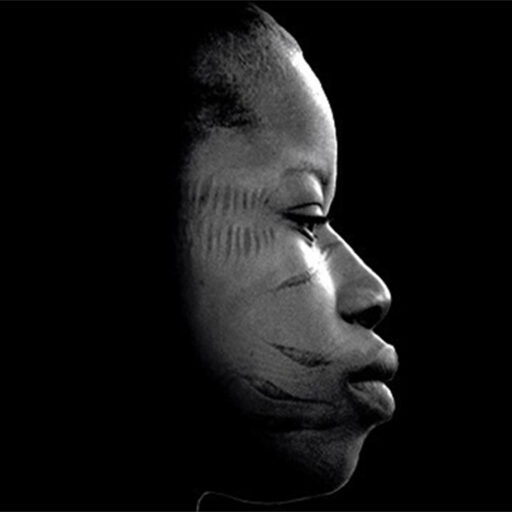Today, February 1st, I dedicate this post to what would have been the 77th birthday of Lélia Gonzalez, an important militant of women’s rights and the Movimento Negro in Brazil. Any black women that adores and appreciates the work and dedication of women such as Angela Davis, Assata Shakur, bell hooks, Kathleen Cleaver or Frances Cress-Welsing should also be familiar with the story of Gonzalez, who was their Afro-Brazilian equivalent. One of my first memories of Lelia Gonzalez was the realization of how Afro-Brazilian militants and leaders are often ignored or under appreciated in Brazil. I remember walking into a restaurant in the historic Pelourinho area of Salvador, Bahia, to eat lunch with two Bahian friends. When I entered the restaurant, I saw a large photo of Gonzalez on the wall above a table. Because of her importance to black Brazilian history, I was excited to see the poster as the owner obviously recognized who she was. My disappointment only came when the two Bahians I was with had no idea who she was.
Lélia Gonzalez was an intellectual, anthropologist, professor and militant of the Movimento Negro Unificado, born in Belo Horizonte, Minas Gerais, today, February 1, 1935. She is a legend in the history of the Brazilian feminist movement in its struggle to combat violence against women, particularly sexual and domestic violence. The daughter of a black railroad worker and a mother of Indian origin, and the last of eighteen brothers and sisters, she migrated to Rio de Janeiro in 1942. A pioneer in the study of Black Culture, she earned a degree in Philosophy and History, a Master’s in Social Communications and a Ph.D in Social Anthropology in São Paulo and dedicating herself to research on the topic of gender and ethnicity. She joined the Movimento Negro Unificado and played a fundamental role in the defense of black women, participating in the Research Institute of Black Culture and the Black Women’s Collective, N’Zinga.
Gonzalez’s work highlighted the plight and social position of black women in Brazilian society, a position of triple oppression in terms of race, gender and socio-economic status. On Brazil’s particular brand of racism and white supremacy, Gonzalez wrote:
“racism in Latin America is sophisticated enough to keep blacks and Indians in the subordinate condition within the most exploited class, because its most effective form of ideology: the ideology of whitening, so well analyzed by Brazilian scientists. Transmitted by means of communication and the traditional ideological systems, it reproduces and perpetuates the belief that the ratings and values of white Western culture are the only true and universal. Once established, the myth of white superiority proves its efficiency and the effects of violent disintegration, fragmentation of ethnic identity produced by it, the desire to whiten (“cleaning the blood” as they say in Brazil), is internalized with the consequent denial of their own race and culture.”
At the Second Congress of Mulher Paulista (Women of São Paulo) in the city of Valinhos, the organization SOS Women was created. With other organizations of similar services being created in other states, these were autonomous entities that were meant to attend to female victims of violence, with voluntary services of lawyers and psychologists. As a result of the feminist movement, Women’s Police Stations were initiated in 1985 in Sao Paulo. The Brazilian Constitution of 1988 recognized the crime of domestic violence and the necessity of creating state measures to curb it. Gonzalez was a candidate for federal deputy in 1982, state deputy in 1986 and participated in the first composition of the Conselho Nacional dos Direitos da Mulher (National Council of Women’s Rights), CNDM (1985-1989).
A great promoter of Afro-Brazilian traditions, she also belonged to the Grêmio Recreativo de Arte Negra (Recreative Guild of Black Art) and Recreativo Escola de Samba Quilombo (Recreative Quilombo Samba School), a collective that celebrated Carnaval by maintaining the roots of the original old school Samba of Rio de Janeiro. She was also a founding member of the important afro bloco/social group, Olodum, in Salvador, Bahia. She died prematurely due to heart problems, in Rio de Janeiro at age 59. She served in Brazilian universities for over 30 years until her death. In her last days, in recognition of her competence, she was elected Head of the Department of Sociology, at the Catholic University, PUC in Rio de Janeiro. Among her important works include 1982’s Lugar de Negro (Place of the Negro) with noted sociologist Carlos Hasenbalg, and Festas Populares no Brasil (Popular Festivals in Brazil), which earned an award at the Frankfurt Fair, as well as numerous papers, communications, seminars and social-political pamphlets.
Her accomplishments and importance in the history of black Brazilian women are too numerous to note here, but hopefully this piece serves as introduction to the life of a woman that should take her place alongside other, more well known black women who dedicated their lives to the pursuit of justice for women and persons of African descent.
See more about Lélia Gonzales – in Portuguese




